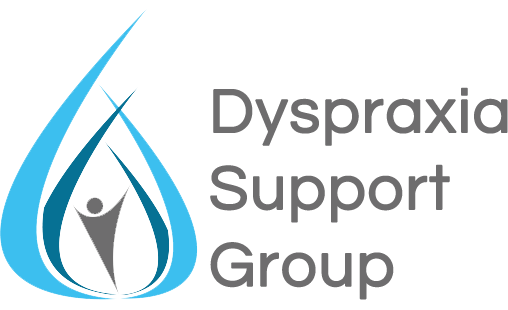Dyspraxia and Teaching
Developmental Dyspraxia is a neurologically based impairment or immaturity of the organisation of movement. Associated with this may be difficulties with language, perception and thought.
Affected children have a normal intelligence for their age but may have difficulty in both processing information and in communicating what they know or understand.
It affects each child differently, therefore each child’s difficulties are unique to them. Some children navigate their way relatively easily and may not need a great deal of intervention.

Difficulties may show in:
Fine motor skills - writing and drawing abilities.
Gross motor skills- physical games, PE classes, ball activities and playing outside.
Eating and drinking.
Dressing.
Learning new skills.
Distractibility and disruptive in the classroom.
Movement and balance.
Standing on one leg, hopping or jumping.
Copying text from book or blackboard.
Sequencing.
Planning and organising thoughts.
Language skills, word recall, communication.
Following instructions.
Social skills and behaviour.
Emotional immaturity.
Inconsistency.
What will help ?
Reading relevant material will help you gain a deeper understanding — many of the difficulties you encounter with the individual child can be directly accounted for by relating it to the information. With this understanding you can work out the most appropriate approach to teaching the child.
If you find something you don’t understand, consulting the child’s parents or therapist may help. The Dyspraxia Support Group provides training to teachers and support staff. Please phone or email us for anysupport you may need.
What the teacher can do:
Adjust (not necessarily lower) expectations in spite of child seeming bright enough.
Allow more time.
Adjust quantity of work.
Give gentle reminders.
Good teaching practices win every time.
Listen to parent, who knows this child better than anyone ever will.
Break tasks down into more manageable parts – simplify!
Don’t assume the child has understood.
Give single instructions rather than a long list.
Look for the strengths of the child. Encourage and develop these.
Acknowledge the effort the child has put into the task.
Sometimes this is far greater than their peers.
Celebrate the child for their unique qualities..

Contact
Phone: 03 358 3249
Email: [email protected]
The Dyspraxia Support Group of N.Z. (Inc.)
P.O.Box 20292, Bishopdale,
Christchurch, New Zealand
Disclaimer
The views and opinions on this site are those of the individual authors and not necessarily those of Dyspraxia Support Group of NZ Inc unless specified otherwise. The material provided is for information only and not to be used for diagnosis or treatment purposes. It is also not a substitute for professional care in the diagnosis and treatment of Developmental Dyspraxia/DCD.
Information
What is Dyspraxia
Dyspraxia for Kids
Dyspraxia and Teaching
Fungroups
References
Adults and Employers
Contact
Phone: 03 358 3249
Email: [email protected]
The National Office is open between the hours of 9.00am and 1.00pm Monday to Thursday
The Dyspraxia Support Group of N.Z. (Inc.)
P.O.Box 20292, Bishopdale,
Christchurch, New Zealand
Disclaimer
The views and opinions on this site are those of the individual authors and not necessarily those of Dyspraxia Support Group of NZ Inc unless specified otherwise. The material provided is for information only and not to be used for diagnosis or treatment purposes. It is also not a substitute for professional care in the diagnosis and treatment of Developmental Dyspraxia/DCD.
Website Hosting by Gherkin Media
Website Hosting by Gherkin Media
